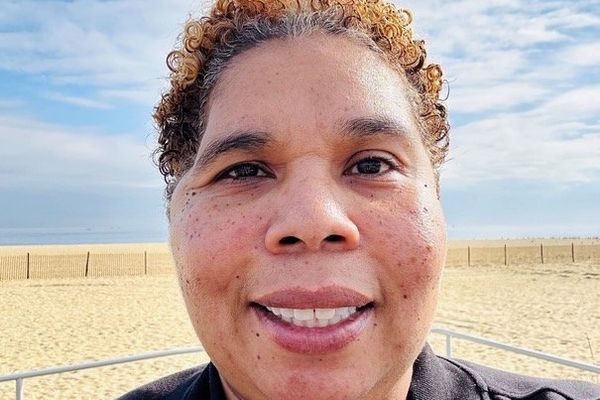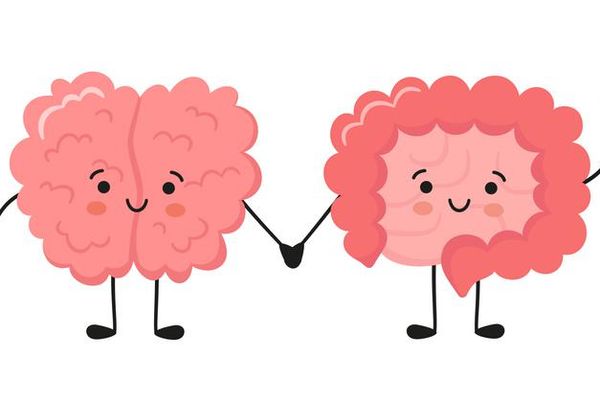Oops, you forgot where you put your keys. Or you can't remember what's-her-name's name.
Forgetting things is a common experience, but it can be frustrating and even frightening. Yet, it doesn't have to mean all hope is lost. Whatever your age, there are ways to improve your cognitive skills.
Although our brains reach their maximum size when we're in our early twenties and then slowly decline in volume over time, the good news is that studies have shown the brain to be capable of regrowth. In fact, the brain can learn and acquire new skills and facts all throughout life—especially if you regularly exercise both your body and your brain (which is a muscle, after all).
Sure, age may make learning new information tougher for some, but what's good is that many parts of the brain remain untouched, according to the Mayo Clinic, who says these include your habit-based memory, the one that stores skills established by repetition and practice (like riding a bicycle).
Here are 10 ways to keep your memory in fighting shape.
- Challenge yourself. Your mind creates new cell connections whenever it is exposed to new things. That's why it's good to take a class, try new foods, explore new technology, take up a new sport or learn a new hobby like bridge or chess. A study published in the journal Psychological Science found that when people learned a new skill, their memories improved. Staying challenged and engaged is good for the brain.
- Focus. Distractions can take your attention away from a person or a task, thus inhibiting your ability to form memories. So can going about your day mindlessly. "When you can't remember where you put your keys, cell phone, etc., chances are you were not paying attention when you put them down," says Ruth Curran, author of Being Brain Healthy. Curran says one of the best ways to cement a memory is to focus your mind on what you want to remember. Concentrating helps to steer the information into your brain for storage, consolidation and retrieval.
- Use your senses. Sensory cues help make, store and recover memories. That same part of the brain that processes our senses also helps store emotional memories. That's why smells, sounds and sights can arouse strong memories. If you're at a lecture, take notes. Read out loud to yourself, even if you're a visual learner. Touching or smelling something can help you tune into the present and retain more. Think about it: Just the aroma of suntan lotion can bring you back to a long-ago day at the beach.
- Exercise. Aside from benefitting your physical health, regular aerobic exercise has been shown to change the brain and protect memory and cognitive skills by boosting the size of the hippocampus (that's the area of the brain responsible for verbal memory and learning) and stimulating new connections between neurons. It brings more oxygen to your brain and reduces the risk of illnesses like diabetes and cardiovascular disease, which can lead to memory loss. The Centers for Disease Control and Prevention recommends that adults get at least two hours and 30 minutes (that's 150 minutes) of moderate-intensity aerobic activity each week.
- Socialize. Can your friends make you smart(er)? Many researchers believe that getting out and socializing with others is the key to keeping your brain sharp, avoiding diseases like dementia and Alzheimer's and improving mood and memory function. A study published in the American Journal of Public Health reported that older women with large social networks had a reduced risk of dementia.
- Use mnemonics. This method helps improve learning and memory using tricks and techniques for information that is tough to remember. An example: "Every Good Boy Deserves Fudge" is a way to recall the lines on the treble staff (E, G, B, D, F) in music; "My Very Excited Mother Just Served Us Nine Pies" is the way many of us were taught to remember the order of the planets (Mercury, Venus, Earth, Mars, Jupiter, Saturn, Uranus, Neptune and Pluto).
- Build a routine. While routines can get boring at times, they work wonders for helping you remember things. For example, keep everything in its place: When you come in the door, put your keys in the same place; always write a to-do list (and check it multiple times throughout the day). Routine=Repetition=Memories.
- Group and relate. If you're trying to learn new information, relate the new information to things already in your mental storehouse. For example, to remember the name of new people you meet, connect their names to people you currently know. Another example: If you're trying to learn a phone number, try splitting the numbers into smaller groups. For instance, if the number is 8005678900 break it down into three groups of numbers (800, 567, 8900).
- Sleep on it. When you sleep, memories you've formed throughout the day are strengthened and stored. Scientists funded by the National Institutes of Health have found that sleep is essential to learning, both before you learn and after you learn. Sleeping helps prep your brain to learn and form the memories. And after you learn, sleep helps to save and bond those memories into the brain.
- Feed your brain. A diet based on healthy foods like fruits, veggies, whole grains, "healthy" fats (nuts, fish, olive oil) and lean protein can help improve memory. Some brain food standouts include blueberries, wild salmon, walnuts, avocados and beans.







